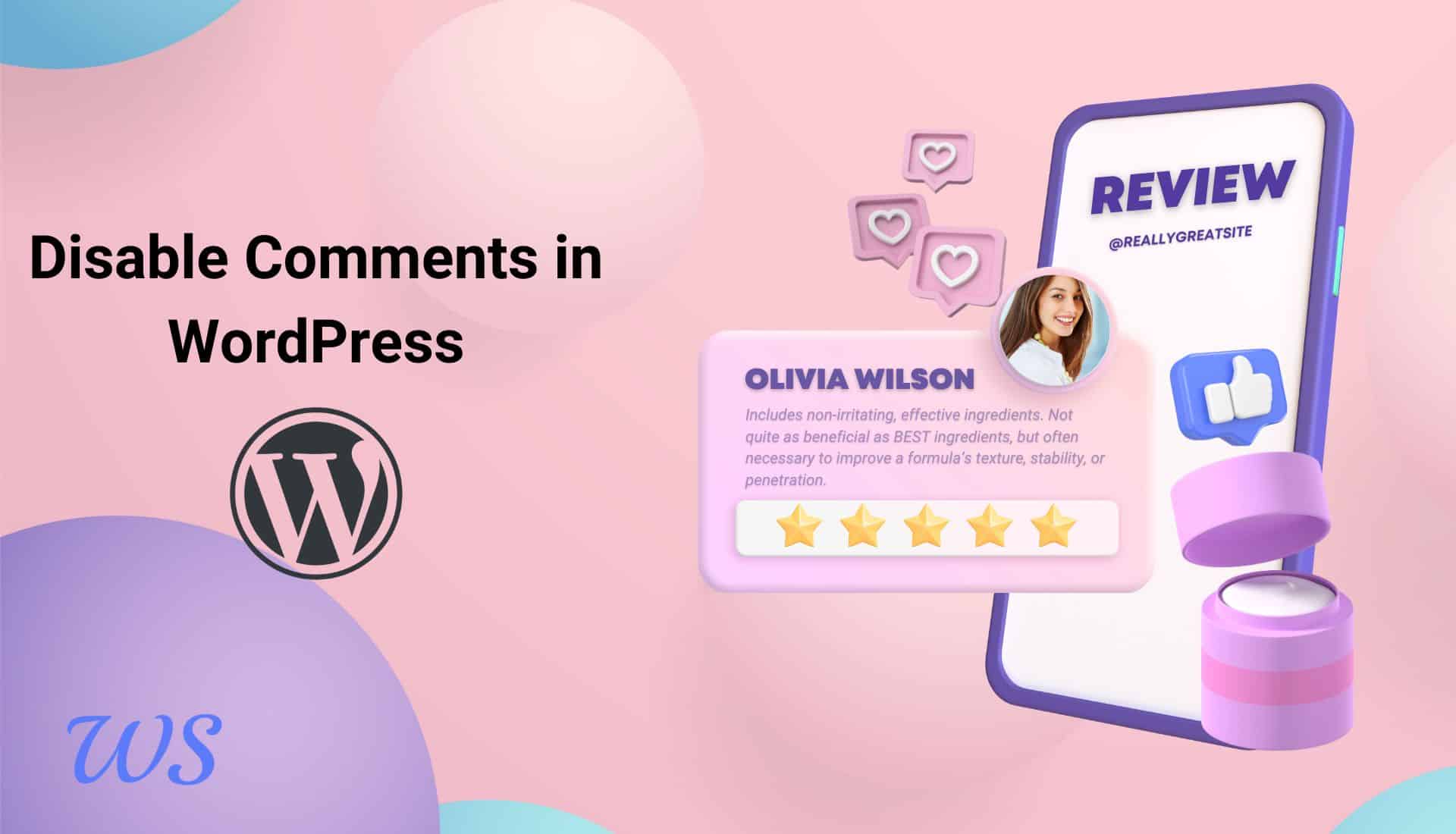
Disable Comments in WordPress: A Comprehensive Guide for Web Designers and Developers
WordPress, an incredibly versatile platform, provides numerous opportunities for user interaction and engagement. One such avenue is using comments, which can serve as a valuable space for discussions and feedback. However, it’s important to acknowledge that comments can be a double-edged sword. While facilitating user interaction, they can also become a breeding ground for spam, requiring additional moderation efforts to maintain a high-quality user experience. Furthermore, comments may sometimes deviate from the original topic, making it crucial for web designers and developers to have the knowledge and tools to disable comments in wordpress when necessary. This comprehensive article will guide you through disabling comments in WordPress, empowering you to have greater control over your website’s content and user engagement.
Why Disable WordPress Comments?
While comments can foster user interaction and provide valuable feedback, they can also create problems that must be addressed. One of the principal issues is the presence of spam comments, which can be quite persistent despite anti-spam measures like Akismet. These spam comments clutter your site and diminish its professional appearance, potentially impacting user experience. Methods of Disabling Comments in WordPress
Additionally, moderating comments can become time-consuming, especially for busy websites. It may even require dedicated personnel to handle the influx of comments effectively. Moreover, it’s important to note that not all comments may be relevant to the main content. Off-topic comments can divert attention and detract from the overall quality of your site, potentially diluting the intended message.
Therefore, it is crucial to balance encouraging user engagement through comments and managing the potential challenges they may bring. By implementing appropriate moderation practices and utilizing effective spam filters, you can maintain a positive user experience and uphold the integrity and quality of your website.
There are several ways to turn off comments in WordPress. We’ll discuss three key methods here:
Disabling Comments on Future Posts
To disable comments on new articles, follow these simple steps. Start by navigating to the Settings menu. From there, locate the Discussion section, and you will find an option to uncheck the box next to “Allow people to post comments on new articles”. It’s important to note that this setting will only apply to published posts after making this change. By taking this action, you can effectively control the commenting feature on your articles and maintain a more streamlined user experience.
Disabling Comments on Existing Posts
If you want to disable comments on existing posts, you must edit each post individually. To do this, open the desired post in the editor and navigate to the “Discussion” box under the document settings. Once you locate the “Discussion” box, you can easily disable comments by unchecking the “Allow Comments” option. If you don’t see the “Discussion” box, you can enable it by going to the ‘Preferences’ section, which can be found under the three-dot menu. Following these steps will ensure that comments are disabled on your posts, giving you more control over the content and interactions on your platform.
Using a Plugin to Disable Comments
There are several plugins available to manage comments on WordPress websites effectively. One popular plugin is “Disable Comments,” which can be easily installed from the official WordPress repository. This powerful tool empowers administrators to turn off comments on various post types, including posts, pages, attachments, and more. This plugin allows website owners to have greater control over their comment sections and tailor their content engagement strategy according to their specific needs and preferences.
Considerations Before Disabling Comments
Disabling comments can have several impacts. One of the main concerns is that it can lower user engagement. Comments provide a valuable way for users to interact with the content and the author, fostering a sense of community and encouraging discussions. Without comments, the opportunity for meaningful conversations and feedback may be diminished.
Additionally, there is an ongoing debate within the digital marketing community regarding the impact of comments on search engine optimization (SEO). While there is no definitive answer, some argue that many quality comments can positively influence SEO rankings. The rationale is that comments can indicate user-generated content, which search engines may interpret as a sign of relevance and engagement.
The decision to disable comments should be carefully weighed, considering the potential impact on user engagement and the ongoing debate surrounding its effects on SEO.
Conclusion
In conclusion, disabling WordPress comments can significantly contribute to maintaining a clean and professional website appearance. This approach saves valuable moderation time and ensures that discussions remain relevant and on-topic. However, it is important to consider that while disabling comments might enhance website cleanliness, it could result in decreased user engagement and impact SEO performance. As a web designer or developer, it is crucial to carefully evaluate the pros and cons before deciding. We hope that this comprehensive guide assists you in making an informed choice and implementing it effectively to optimize your website’s functionality and user experience.


